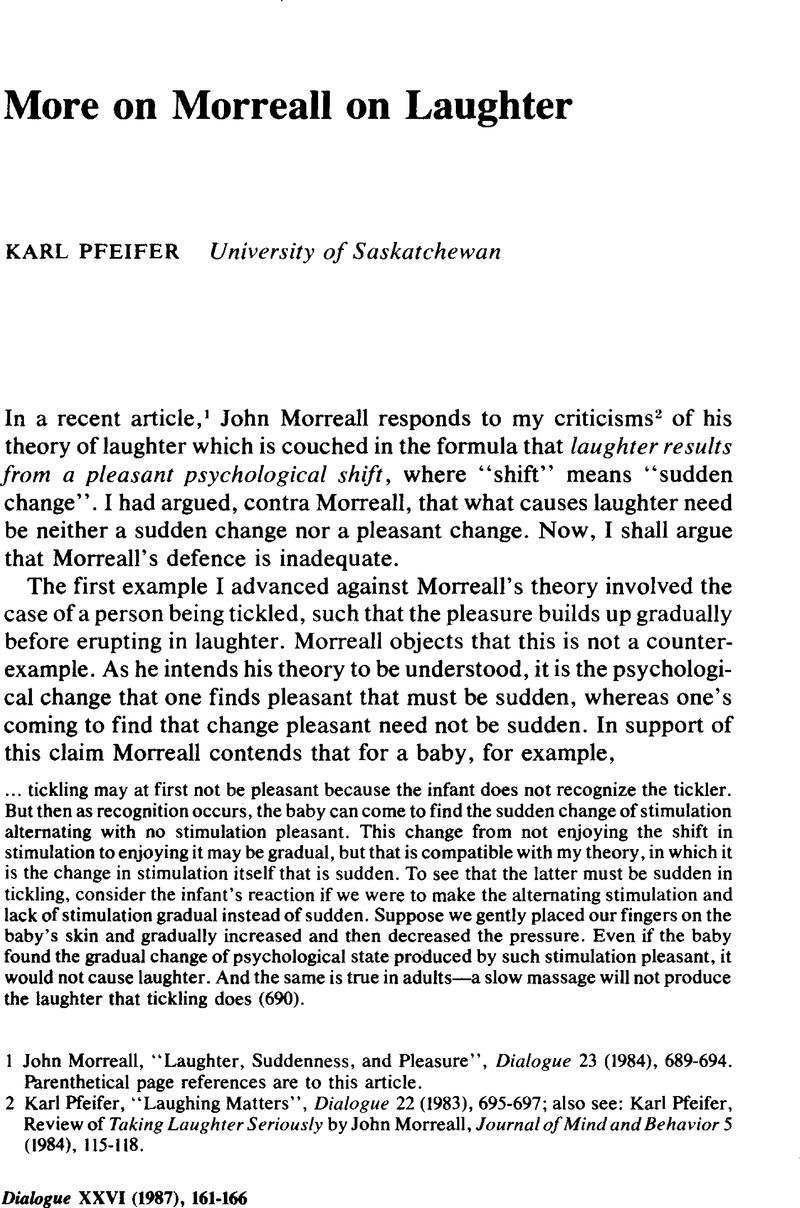Published online by Cambridge University Press: 13 April 2010

1 Morreall, John, “Laughter, Suddenness, and Pleasure”, Dialogue 23 (1984), 689–694.CrossRefGoogle Scholar Parenthetical page references are to this article.
2 Pfeifer, Karl, “Laughing Matters”, Dialogue 22 (1983), 695–697;CrossRefGoogle Scholar also see: Pfeifer, Karl, Review of Taking Laughter Seriously by Morreall, John, Journal of Mind and Behavior 5 (1984), 115–118Google Scholar.
3 The quotation marks are Morreall's. I am not sure what their significance is supposed to be; but if it is tantamount to that of the use I urged in the plover case, he is in trouble.
4 Unhappily, Morreall is silent on the issue of suddenness for non-standard cases. Does embarrassed laughter require a sudden change that one has to cope with? Or must the laughter produce a sudden change for there to be successful coping? 1 leave these tantalizing questions as an exercise for the reader.
5 Dennett, Daniel, “Julian Jaynes's Software Archeology”, Canadian Psychology!Psychologie Canadienne 27 (1986), 149–154.CrossRefGoogle Scholar
6 This paper derives from work done under a grant from the Social Sciences and Humanities Research Council of Canada. I am grateful to the Council for its generous support.